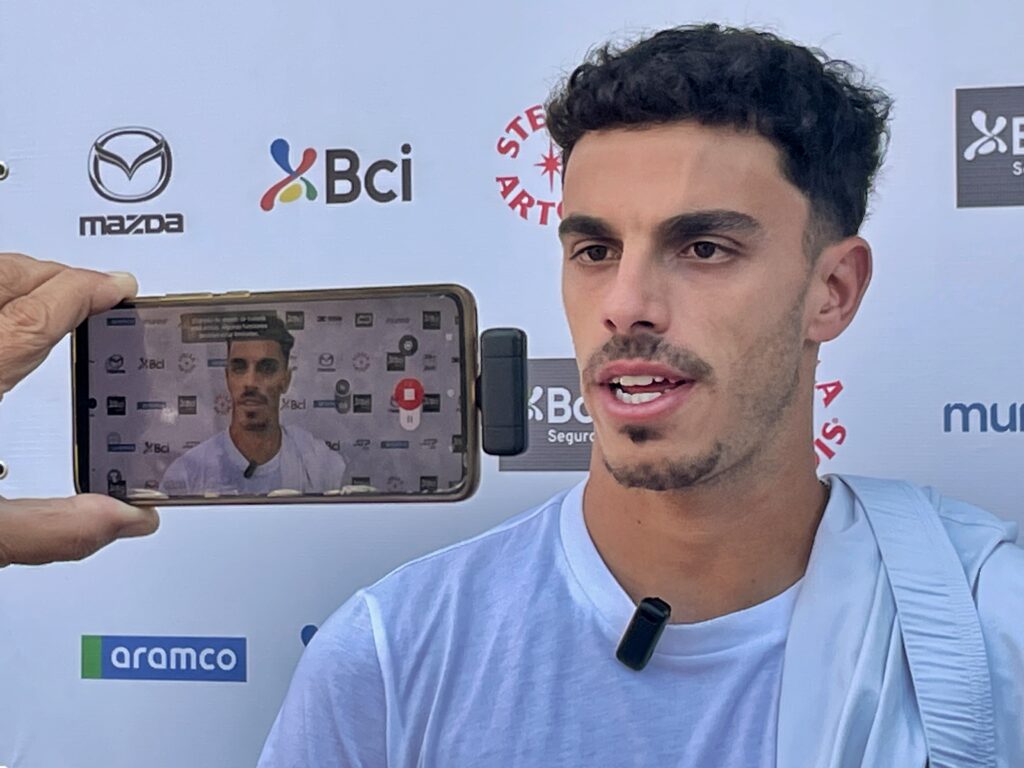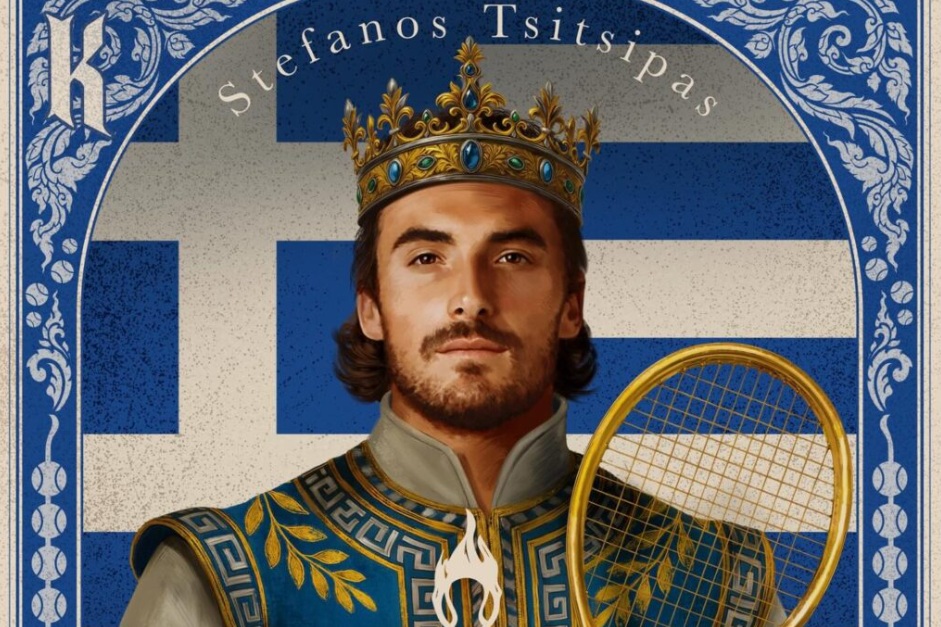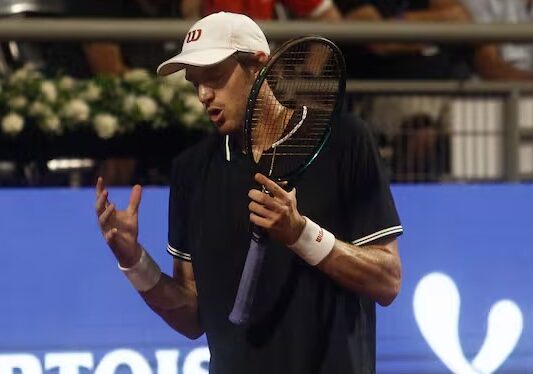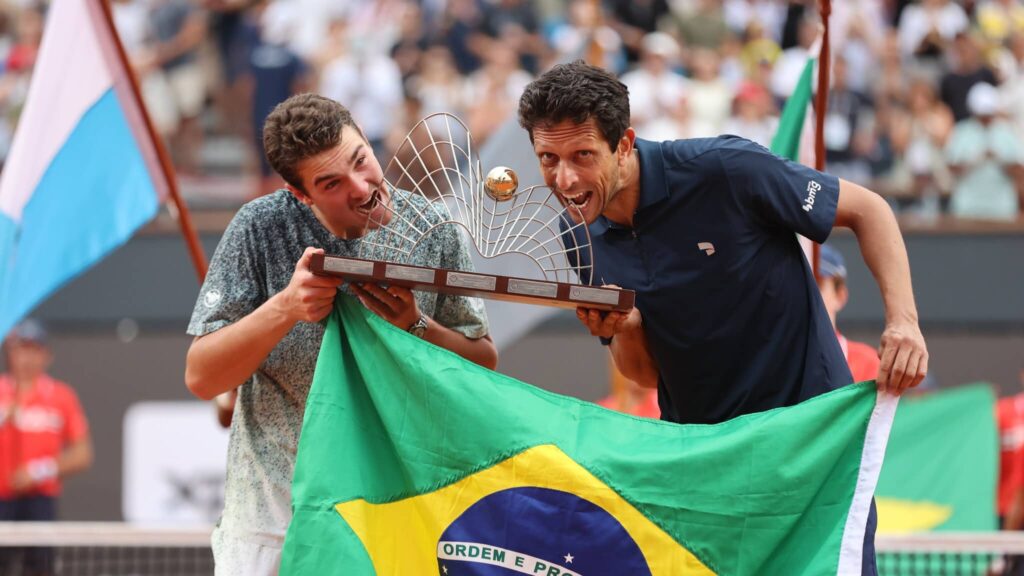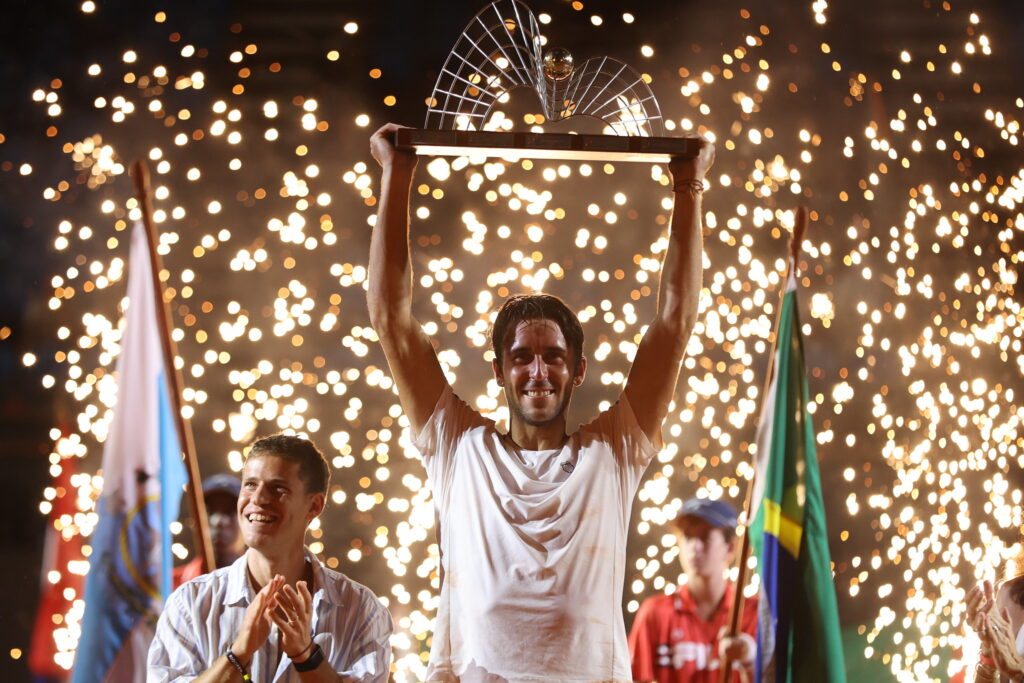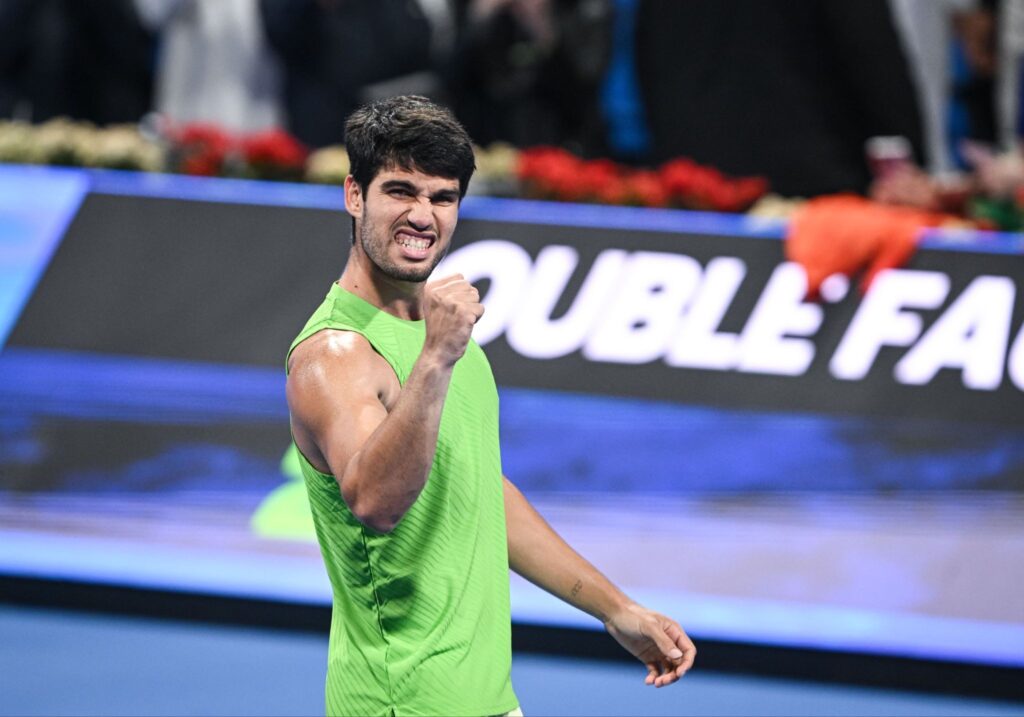BARCELONA – While expecting the arrival of Goran Ivanisevic, Stefanos Tsitsipas is recovering from the emotional blow of what he called the “second worst loss” of his career after his defeat in Monte Carlo.
The Croatian coach will join Tsitsipas’ box with the mission of bringing back the best version of the former world No. 3, who has been off track for the past couple of years. A real challenge in Ivanisevic’s coaching journey, especially after his recent decision to part ways with Elena Rybakina.
The former Novak Djokovic coach will start working with Tsitsipas at the beginning of the grass swing, with Wimbledon—Ivanisevic’s happiest hunting ground—as the main target. This was reported by Gazzetta.gr. Tsitsipas, however, with his usual serious expression, chose not to confirm it yet in front of the media.
But first comes Barcelona. A city that brings mixed emotions to the Greek: he has won plenty of matches at the Conde de Godó, but has never managed to lift the trophy. In four of the past six editions, he has lost in the final—Rafael Nadal (twice), Carlos Alcaraz and Casper Ruud all won the title right in front of him. Against Nadal, he let a match point slip away.

Tsitsipas arrived in Spain hurt, licking his wounds. In Monte Carlo, he lost to Lorenzo Musetti in the quarterfinals of the tournament where he has been happiest (he won it in 2021, 2022, and 2024), and dropped to 18th in the rankings.
In his own words, it was the second most painful defeat in recent years of his career, after squandering a two-set lead in the 2021 Roland Garros final against Novak Djokovic.
Why did an unexpected setback in Monte Carlo hurt almost as much as that defeat on the Parisian clay that denied him his first Grand Slam? The Monte Carlo event is a Masters 1000, and the Greek was only playing the quarterfinals of a tournament he had won three times (2021, 2022, and 2024).
‘I felt like I had everything under control, that I shouldn’t have been so affected by Musetti’s game. What made that loss so painful is that I felt better during the match, I felt I was playing better, that I had better weapons, better strategies when constructing points, that I was being dangerous. For the victory to slip away from my hands hurt because, deep inside, it felt unjust,’ Tsitsipas told CLAY.
‘Although, of course, it wasn’t; Musetti won for his bravery, with all his heart, and because he fought so much, but inside me, I felt it shouldn’t have been that way,’ the Greek continued, one of those players who doesn’t mind elaborating on his explanations.
‘This rarely happens, and specifically, it hasn’t happened many times in my career. Normally, when I lose, I feel the other player was much better, showing more courage and better tennis than I did, but in this case, I felt it slipped away from my hands,’ he added.”

With that feeling, his abrupt fall in the ATP rankings – dropping from 10th to 18th – and a coaching team on site that no didn’t include Dimitris Chatzinikolaou, the Greek coach who succeeded his father Apóstolos, Tsitsipas traveled to Barcelona. The Greek does not hide that he wants to engrave his name on the trophy after getting so close so many times.
‘I’ve blocked out any fear, any uncertainty, and I’m not going to let anyone ruin my dream of winning here,’ Tsitsipas said after defeating Sebastian Korda to reach the quarterfinals of the Catalan tournament.
‘I don’t want anyone standing in my way, making me feel fear or uncertainty,’ he continued, after admitting that he still hasn’t played well enough to be considered one of the favorites for the title.
The truth is that Tsitsipas, 26, has long struggled to find the kind of tennis he wants to play. Nor has he found the emotional stability he’d like to bring to the court. That’s why, last August, he sidelined his father Apostolos from his role as coach. And while searching for a guiding light to illuminate his path once again, he added Dimitris Chatzinikolaou, Greece’s Davis Cup captain, and Kerei Abakar, technical director of the Mouratoglou Academy, to his team. As in Monte Carlo, Abakar is the only one accompanying him in Barcelona. And although he sometimes can’t help but shout a bit of advice, Apostolos Tsitsipas now plays the role of father from the second row of the player’s box.
The front row, it seems, is reserved for Goran Ivanisevic once the clay season wraps up. For Tsitsipas, that stretch will continue with the Masters 1000 events in Madrid and Rome, followed by the ATP 500 in Hamburg, before landing at Roland Garros (May 25 to June 8).
“That loss to Musetti will definitely help me in the future. I’m sure I’ll learn a lot from that experience so I don’t make the same mistakes going forward,” the Greek told CLAY ahead of his Barcelona quarterfinal against Arthur Fils, the new French sensation.
As he himself pointed out, as painful as they are, there are defeats that turn out to be “positive” because of how much they teach you — “because they help you grow and see the future in a different light.”
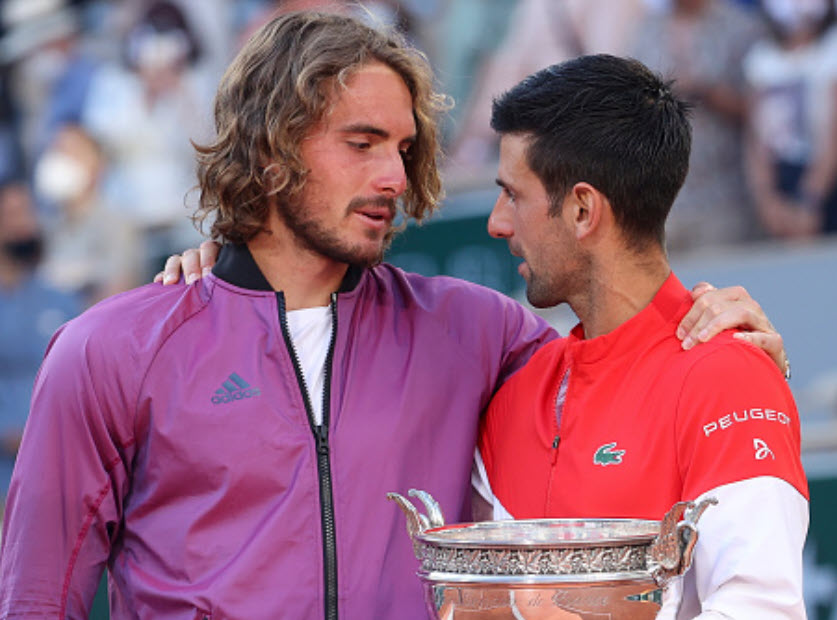
For example, Wawrinka’s loss to Djokovic in the fourth round of the Australian Open many years ago [2013]; I think that was a very good loss for him because, if I’m not mistaken, he beat him in the quarterfinals the following year,” said Tsitsipas, showing off his sharp memory. After defeating the Serb and then Tomas Berdych in the semifinals, the Swiss would go on to win the title in Melbourne (2014), beating Nadal in the final.
Still, Tsitsipas doesn’t hide it — his current situation demands wins, even if they come while playing poorly.
“This job I do, unfortunately, requires victories. And to be among the best in the world, you need quite a few of them. So I’d gladly take an ugly win any time. I’d take it a hundred times over a loss,” the Greek admitted.
And so, Ivanisevic — the coach who helped Djokovic surpass Federer and Nadal in Grand Slam titles — now has a new task: to teach Tsitsipas the art of winning while playing badly. That special trait that separates great champions from merely good players.

